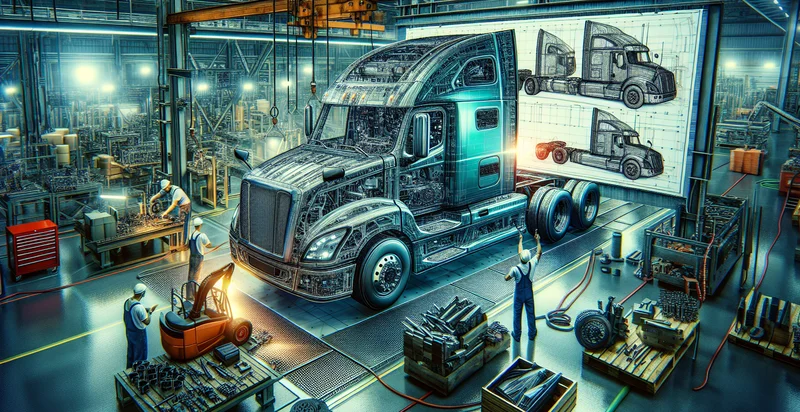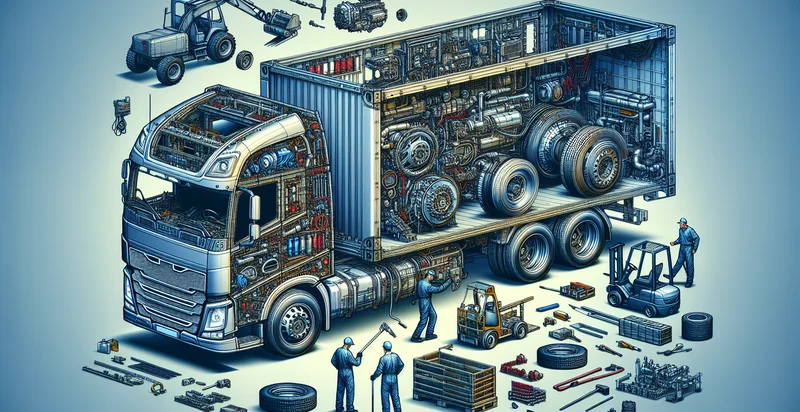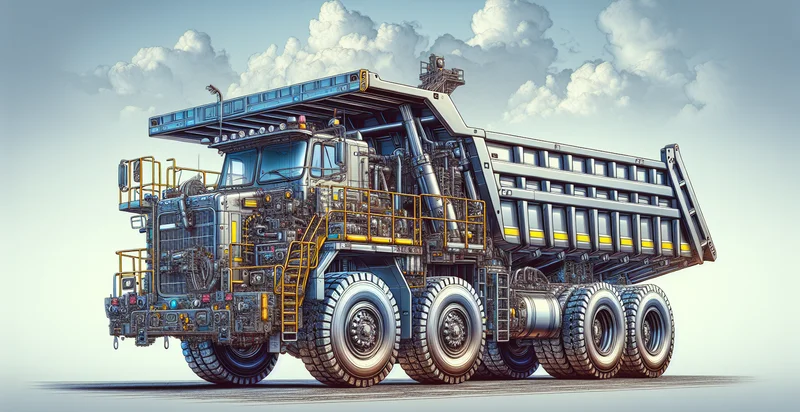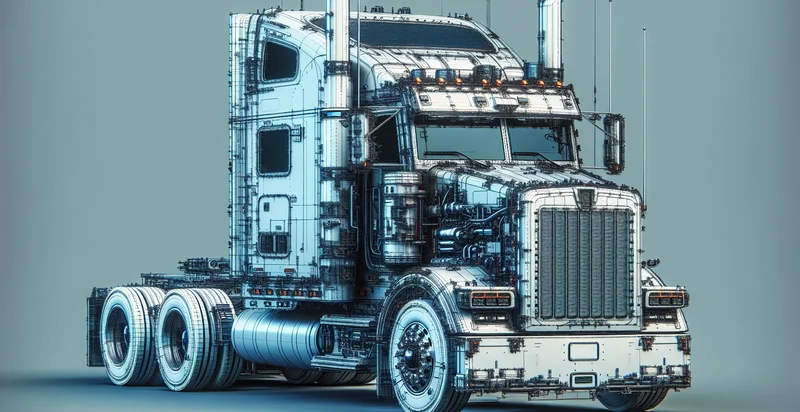Identify semi truck make by cab
using AI
Below is a free classifier to identify semi truck make by cab. Just upload your image, and our AI will predict the make and model of the semi truck based on the cab design - in just seconds.

Contact us for API access
Or, use Nyckel to build highly-accurate custom classifiers in just minutes. No PhD required.
Get started
import nyckel
credentials = nyckel.Credentials("YOUR_CLIENT_ID", "YOUR_CLIENT_SECRET")
nyckel.invoke("semi-truck-make-by-cab", "your_image_url", credentials)
fetch('https://www.nyckel.com/v1/functions/semi-truck-make-by-cab/invoke', {
method: 'POST',
headers: {
'Authorization': 'Bearer ' + 'YOUR_BEARER_TOKEN',
'Content-Type': 'application/json',
},
body: JSON.stringify(
{"data": "your_image_url"}
)
})
.then(response => response.json())
.then(data => console.log(data));
curl -X POST \
-H "Content-Type: application/json" \
-H "Authorization: Bearer YOUR_BEARER_TOKEN" \
-d '{"data": "your_image_url"}' \
https://www.nyckel.com/v1/functions/semi-truck-make-by-cab/invoke
How this classifier works
To start, upload your image. Our AI tool will then predict the make and model of the semi truck based on the cab design.
This pretrained image model uses a Nyckel-created dataset and has 20 labels, including Chevrolet, Daimler, Dodge, Ford, Freightliner, Gmc, Hda, Hino, International and Isuzu.
We'll also show a confidence score (the higher the number, the more confident the AI model is around the make and model of the semi truck based on the cab design).
Whether you're just curious or building semi truck make by cab detection into your application, we hope our classifier proves helpful.
Related Classifiers
Need to identify semi truck make by cab at scale?
Get API or Zapier access to this classifier for free. It's perfect for:
- Fleet Maintenance Optimization: This function can classify semi-truck makes by their cab design, allowing fleet managers to easily identify which models are in need of maintenance or have specific parts requiring replacement. By accurately categorizing the trucks, businesses can streamline their maintenance schedules and reduce downtime.
- Insurance Premium Calculation: Insurance providers can leverage this function to accurately assess the type of semi-trucks they're insuring, leading to customized premiums based on the truck make and associated risk factors. This identification helps insurers understand liability better and manage their underwriting processes efficiently.
- Road Compliance Monitoring: Regulatory agencies can use this classification tool to monitor the compliance of semi-truck makes on public roads. By identifying specific models known for their emissions or safety standards, they can target inspections and improve overall road safety.
- Market Analysis for Sales Strategy: Automotive companies can analyze the data produced by this function to understand market trends in specific semi-truck makes. By knowing what types of trucks are most prevalent, they can tailor their marketing strategies to better meet consumer demand.
- Accident Reconstruction: When a semi-truck is involved in an accident, this function can help investigators determine the make and model, which can be crucial in assessing liability and accident causation. This timely identification helps support legal proceedings and insurance claims.
- Parts Inventory Management: Truck parts suppliers can utilize this classification function to manage inventory based on the makes of semi-trucks that are predominantly in use. By understanding which truck makes require more frequent parts replacement, suppliers can optimize stock levels and improve customer service.
- Autonomous Vehicle Development: Researchers and developers of autonomous truck technology can use this function to differentiate between various semi-truck makes. Understanding how different designs and specifications interact with autonomous features can inform development choices and enhance vehicle performance.


